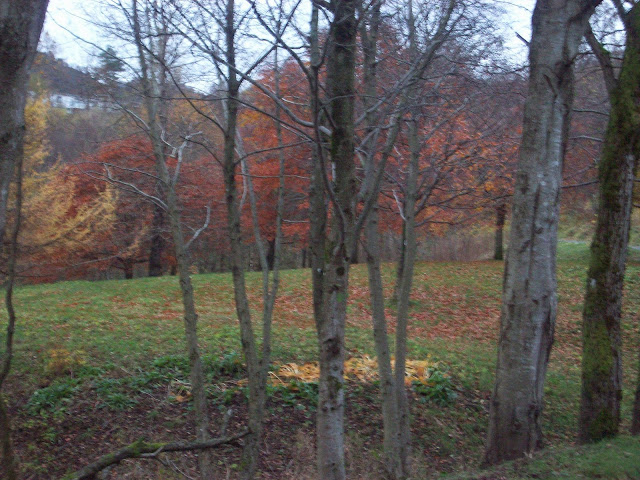As a high school student, I always wondered what my English teacher, Mr. G, thought of our journals. He had to grade endless quantities of teenage angst and sooth our ruffled insecurities into grammatical English. Well, now I know: I’ve been grading journals for the past few months, and IT IS HILARIOUS! My students keep rocking me back from the page with peals of laughter. They write things like, “that was the day I was going to participle in my first volleyball tournament,” and one of the boys had me rolling on the floor with what he wrote about the “hot flushes” of menopause. Of course there’s the one student whose work I read with awe; her metaphors shock me with their poignancy and the spins she puts on my assignments surprise me each time I pick up her essay. I wonder if she knows that the reason her journals are always returned last is because I save them for last, to take the edge off of stale writing and Norwegian grammatical twists to the clean American word. Really, I must mix up my papers.
Recently, I made a tremendous mistake. I gave my students the prompt of writing a Day in the Life of a Teacher—from the perspective of the teacher. Not necessarily me, but any teacher they have. Curious about their insight, I skimmed their journals. Nearly all had written about nerves as they stand in front of the classroom, of eyes dissecting their outfit and students quietly laughing at them while they assign monikers worse than anything I was called in high school.
Now, I’m a pretty confident teacher. To be honest, I love the attention. Having twenty-eight pairs of eyes on me and modulating my every tone and gesture for best effect gives me a high better than whatever they’re smoking in Nygårdsparken. But as I read student after student simulate a private meltdown from my point of view, I realized that this prompt was exactly calculated to psych me out. That, and that I must get my kids to do more public speaking—their fear of it is so great that they project it onto whomever must stand at the head of the classroom. Also, I’m going to have to clarify to them that at no point during the day do I think of them as “brats,” “ignorant teenage jerks,” or “the enemy.”
 |
| Where's Waldo? Can you spot the escaped chickens through the leaves? |
Curiously, I found another pattern in the journals. At least four of them started with me asleep, dreaming that I’m lying on a beach with my lover, and rudely awakened to the school day by my alarm clock. I’d hate to disappoint them by explaining that my most common dream is being unable to locate a particular vegetable in the grocery store (actually, that’s my second most common dream; my first is that I’m walking down the front walk of my house and I trip, but since that’s barely a two-second dream, I don’t think it counts). Anyhow, I’m going to chalk it up to an unaccountably glamorous aura and just sigh in relief that only one person imagined their teacher slipping drinks under the desk.
I hear and I forget;
I see and I remember;
I write and I understand.








































